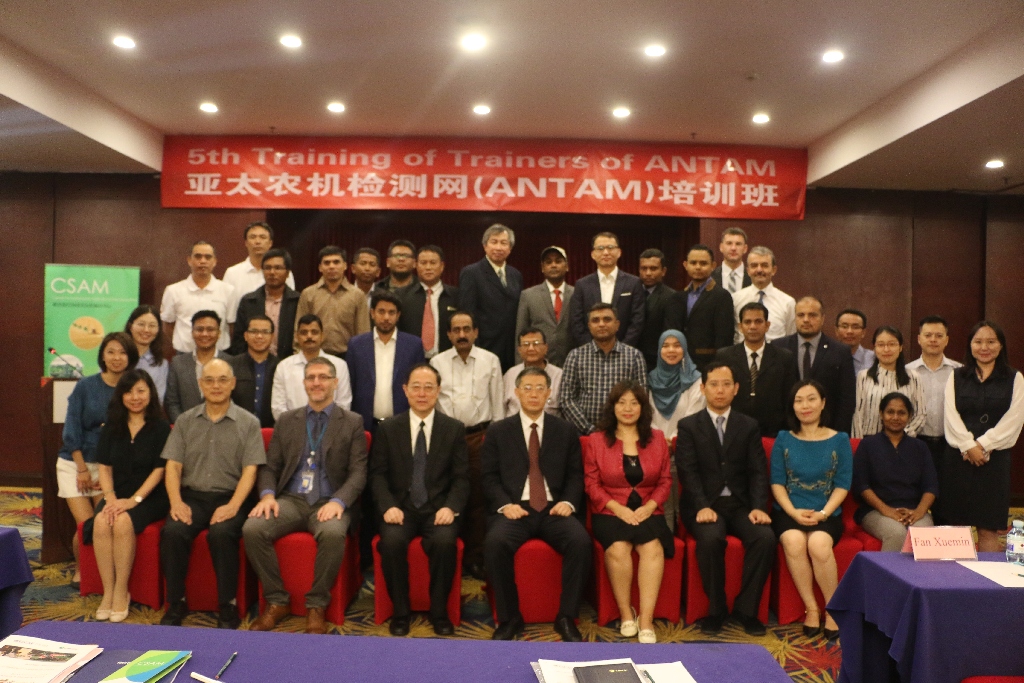CSAM ANTAM meeting endorses quality manual for agricultural machinery testing stations to improve agricultural production in Asia-Pacific

Beijing (ESCAP news) – The Fifth Meeting of the Thematic Working Groups of the Asian and Pacific Network for Testing of Agricultural Machinery (ANTAM) today closed with the endorsement of a quality manual for a proposed network of ANTAM accredited testing stations in the region.
Organized by the Centre for Sustainable Agricultural Mechanization (CSAM) of the United Nations Economic and Social Commission for Asia and the Pacific (ESCAP), in collaboration with the China Agricultural Machinery Testing Centre (CAMTC) and Hunan Agricultural Machinery Testing Station in Changsha, China, the meeting is part of CSAM’s efforts to address the lack of uniform standards for testing of agricultural machinery, which poses threats to trade and sustainable agricultural development in the region.
Ms Yutong Li, Head of CSAM, commented, “By leveraging the expertise of existing testing stations and working towards regional integration through the setting of standards, the work of ANTAM eases the barriers related to trade and investment of safe and eco-friendly agricultural machinery.”
As the backbone of agricultural production in the region, smallholder farmers undertake risks of food production losses and injuries when using unsafe and inadequate machinery. Lack of mutually recognized testing standards for agricultural machinery poses threats to rural development, food security and sustainable livelihoods.
The meeting was held back-to-back with the Fifth Training of Trainers of ANTAM, which provided training to over 40 engineers and officials from 15 countries about the ANTAM codes and quality control measures in the testing of agricultural machinery. This year’s training integrated the theoretical and practical approaches pursued in previous trainings with a new focus on the importance of quality management in testing facilities.
The events benefitted from resource persons from two institutions that recently signed a Memorandum of Agreement with ESCAP alongside the last Belt and Road Forum: the Certification and Accreditation Administration of China (CNCA), which delivered a presentation on China’s certification and accreditation systems, and ENAMA (the Italian Institute for Agricultural Machinery), which serves as Technical Reference Unit of ANTAM and was instrumental to the preparation of the first draft of the Quality Manual.
The programme also included practical activities at testing stations, laboratories and demonstration bases to enhance delegates’ understanding of the codes, as well as visits to agricultural machinery companies and machinery exhibitions.
Established in 2013, ANTAM aims to raise the level of agricultural productivity and income of smallholder farmers in the region. Through its secretariat at CSAM, it supports the transformative approach promoted by the 2030 Agenda for Sustainable Development by integrating local agriculture needs with major international standards and builds on stakeholder partnerships to find cross sectoral solutions. The open regional network is composed of national government bodies and research institutes, as well as engages associations of agricultural machinery manufacturers.
For more information visit: www.un-csam.org
For media enquiries, please contact:
Marco Silvestri, CSAM, T:(+86-10) 8225 3581 E: silvestrim@un-csam.org
